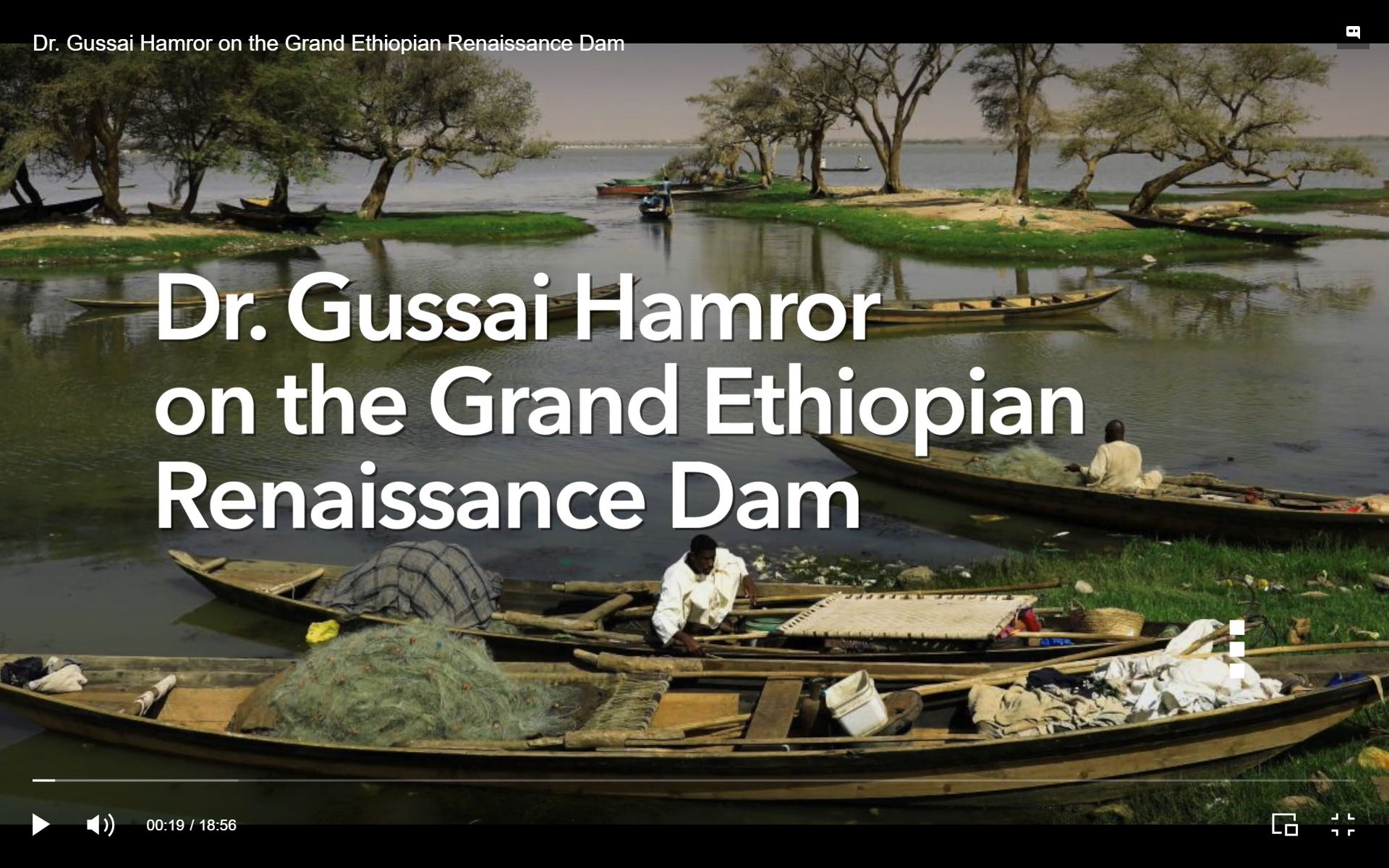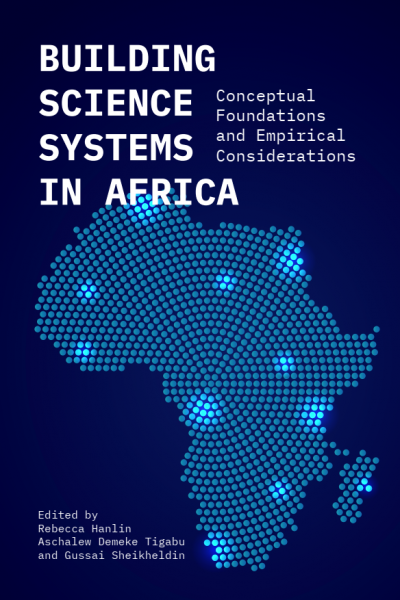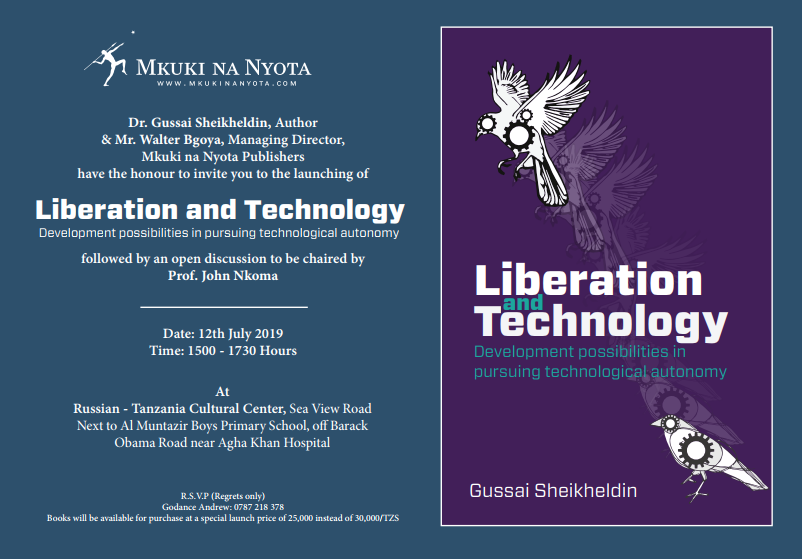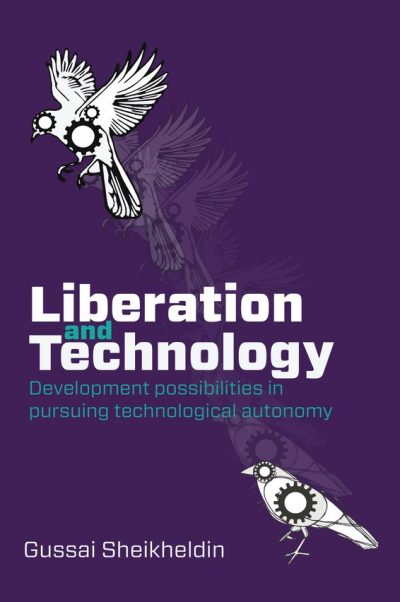development
Building Science Systems in Africa
Edited by:
Rebecca Hanlin, Aschalew Tigabu, Gussai Sheikheldin.
Publishers: Nairobi: African Centre for Technology Studies (ACTS) Press; Dar es Salaam: Mkuki na Nyota Publishers @2021
ISBN 978-9966-08-198-3
Building Science Systems in Africa: Conceptual foundations and empirical considerations.
In recent years a significant amount of attention has been placed on the role of science, technology and innovation for Africa’s social and economic transformation. This book builds on the efforts made in this area and argues that more needs to be done to strengthen African Science Systems.… More
Skills for Innovation – AfricaLics Webinar Series
Skills for innovation: Highly skilled African migrants and the challenges of ‘brain drain’ – part of AfricaLics Webinar Series
Based on an upcoming book chapter, this webinar presented a comprehensive review of the challenges and opportunities resting on the role of highly skilled African migrants in African Science, Technology & Innovation (STI) systems. Two speakers, Dr. Gussai Sheikheldin and Dr. Agnes Lutomiah deliberated on this topic with a view to identifying lessons that innovation scholars can draw on to inform the future of I & D studies research in the continent.… More
Event: Book launch
Below, pictures from the the newspaper article that covered the event (The Citizen (Tanzania), Tuesday, September 3, 2019)
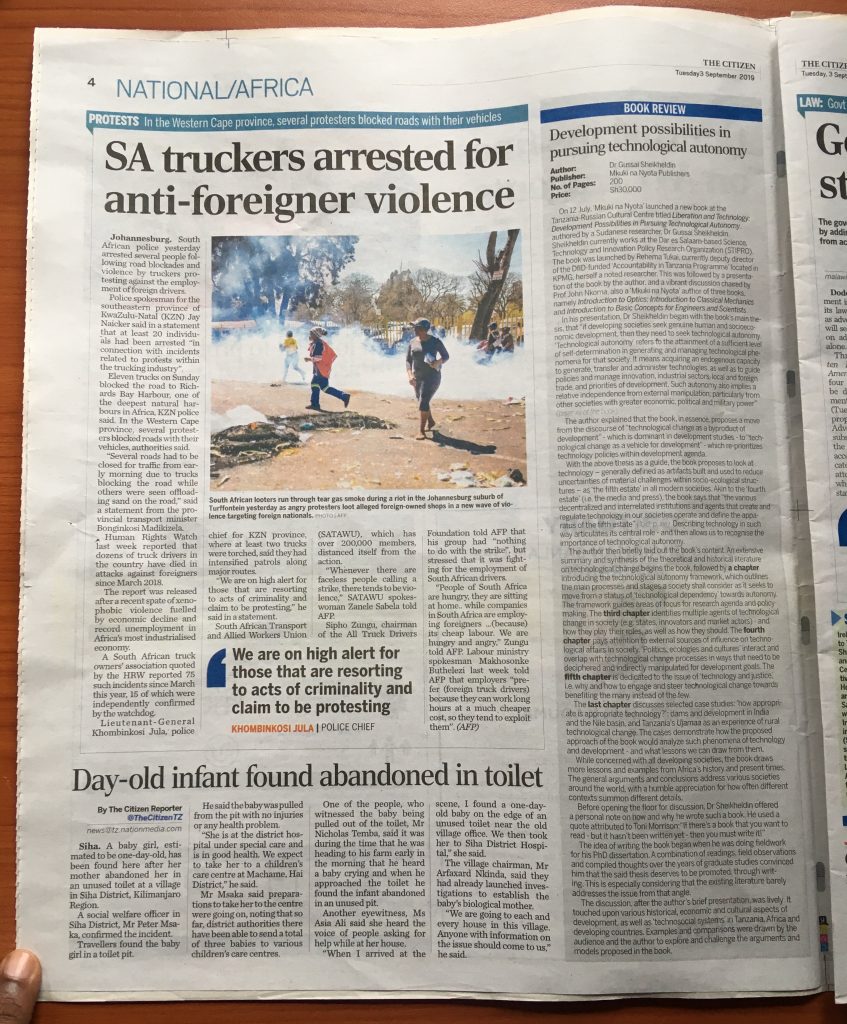
(article about the book launch, right column)
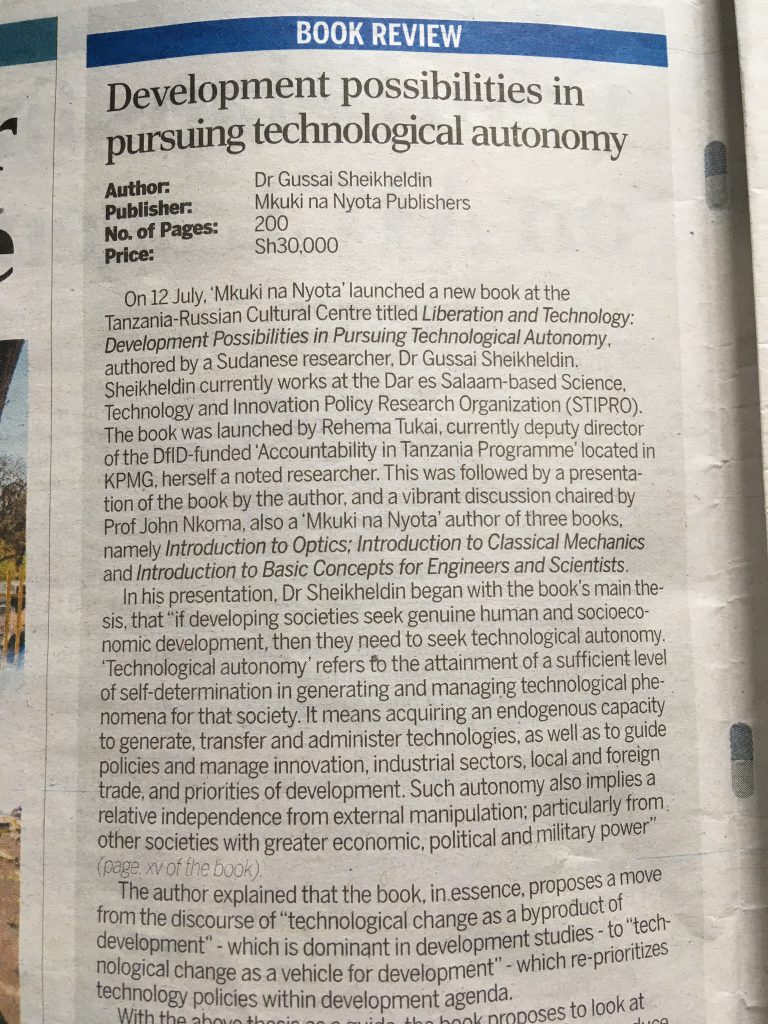
Liberation and Technology
About the book
“The most fundamental difference between ‘developing’ and ‘developed’ societies is technology, in a broad yet specific sense”; so states the author of this important study, Liberation and Technology: Development possibilities in pursuing technological autonomy. The ways in which technology is developed, institutionalized, animated and celebrated, form the core of ‘development’ (human, economic, environmental, etc.) and ultimately civilization itself. But ‘techno-spheres’ are not only technical.… More
KAKUTE: a Local African Social Enterprise
The term ‘social enterprise’ may have been coined recently (relatively), in the Western world, to try to capture and define somewhat new organizational models that do not fit the conventional ‘private sector, public sector and NGO’ categories. These are supposed to be organizations that do not belong to the public sector (which can be easily verified) but also not quite fitting for either the private business or the NGO definition.… More
The problem of seasonality: rural economic cycles in Tanzania
The problem we can call seasonality is not hard to notice in Tanzania, and most actors in the field of national economic development are quite aware of it. Tanzania by no means is unique in this issue. It is described in 9 points here:
- Since the main rural economic activity in Tanzania is agriculture, it is not a surprise therefore that rural economic vitality depends heavily on a good agricultural economy (i.e.
Biogas Construction Enterprises, Tanzania
What do you know about biogas technology?
If you live in a society where agriculture and livestock keeping is a major component of the local economy, then you need to know about biogas technology. It is a simple technology that recruits the help of anaerobic bacteria, in the absence of oxygen, to break down organic matter and produce a mixture of gases in the process.… More

